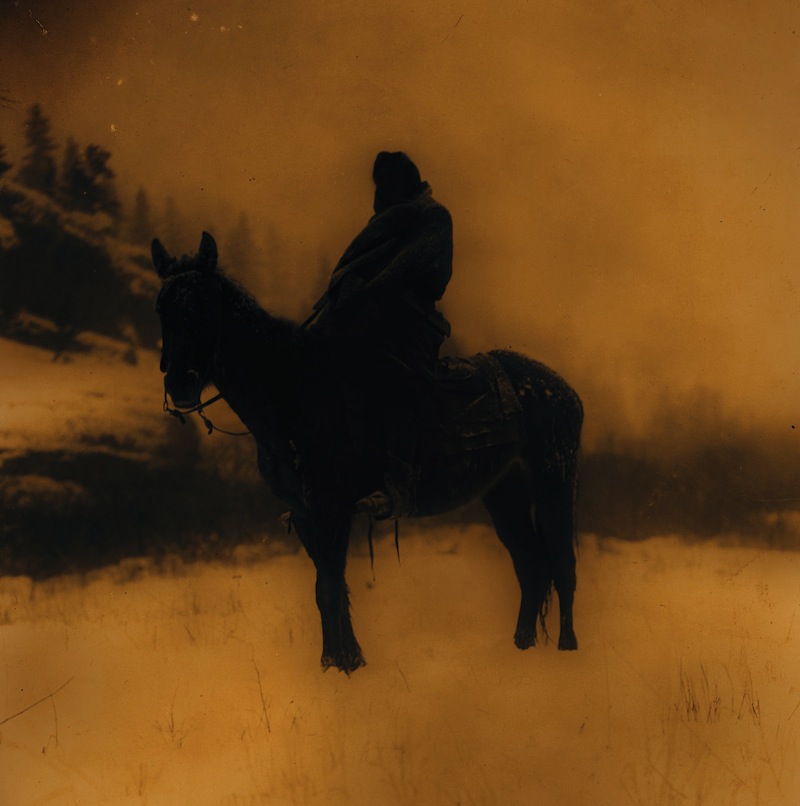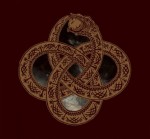Wayfarer : World’s Blood

Americans have been making black metal for a long time, but it’s only been in recent years that black metal has developed a uniquely American identity. Or, more accurately put, one that incorporates the sounds and traditions of American culture in its recordings. Among the most prominent examples of a uniquely American black metal artist is Panopticon’s Austin Lunn, whose music is not only fused with the sound of Kentucky bluegrass but also reflects the state’s history of mining labor and natural wonder in his lyrics. A similar case could be made for Deafheaven, who are a uniquely American black metal band so far as they’re the product of a fusion of different sounds of the American underground, their alt-rock and screamo influences as prominent as their metal ones. But a band like Wayfarer, whose style of black metal reflects the bloody history of the American West, still feels like a rarity in a genre that still favors misanthropic escapism over all else.
Founded in 2011 in Denver, Wayfarer pair black metal aesthetics with a graceful and mournful atmosphere, at once carrying on the lineage of innovators such as Agalloch while also sounding like the product of their own city’s storied gothic Americana scene. Though the band doesn’t so obviously adopt “The Denver Sound,” as pioneered by the likes of 16 Horsepower or Slim Cessna’s Auto Club, the dark blues and country textures of those bands still run through some of their most haunted musical landscapes. Yet on World’s Blood—the band’s first for Profound Lore, as well as their first to feature production from Krallice’s Colin Marston—that haunting comes in large part through their allusions to the displacement and deaths of Native Americans by the hands of settlers and colonists, with a bleak Western atmosphere that feels straight out of Cormac McCarthy’s Blood Meridian. It’s much heavier and more intense thematically than performative misanthropy could ever be.
World’s Blood‘s track titles tell much of the story here—”On Horseback They Carried Thunder,” “A Nation of Immigrants,” “The Crows Ahead Cry War”—as well as the album’s cover art, depicting a darkly ominous figure on horseback shot by Edward S. Curtis in Montana in 1908. This is a harrowingly cinematic album, its intensity defined as much by its more atmospheric elements as that of its metal moments. While the relatively brief opening thunder of “Animal Crown” is indeed ferocious, it feels more like a prologue to the three monolithic pieces at the center of the album. “On Horseback They Carried Thunder” slowly comes to life through a mournful weep of post-rock guitar, gradually building up into a melodically breathtaking, yet utterly ferocious metal opus. “The Crows Ahead Cry War,” by comparison, feels like a march into battle, its stoic boom of tom-toms a harbinger of the climactic roar to come. And the dense wall of guitars that drives “The Dreaming Plain” is among the album’s most ferocious sounds, yet it’s a precursor to an instrumental stretch that showcases something more elegant and intricate, beautiful in its moment of restraint.
Closing track “A Nation of Immigrants” is the most overt reference to Denver’s gothic country heritage in which the band indulges, its acoustic strum and psychedelic chants an eerie diversion from the album’s heavier moments. It feels like an epilogue, a survey of the bloody landscape that shaped the United States. And though the lyrics aren’t any more intelligible than they are when rising up to a scream, it’s an unsettling, affecting piece, like witnessing ghosts becoming corporeal. World’s Blood is littered with small moments like these, glimpses into the history of the American west backed by blast beats instead of war drums.
Similar Albums:
 Agalloch – The Serpent and the Sphere
Agalloch – The Serpent and the Sphere
![]() Panopticon – The Scars of Man on the Once Nameless Wilderness
Panopticon – The Scars of Man on the Once Nameless Wilderness
 Anagnorisis – Peripeteia
Anagnorisis – Peripeteia
Jeff Terich is the founder and editor of Treble. He's been writing about music for 20 years and has been published at American Songwriter, Bandcamp Daily, Reverb, Spin, Stereogum, uDiscoverMusic, VinylMePlease and some others that he's forgetting right now. He's still not tired of it.

